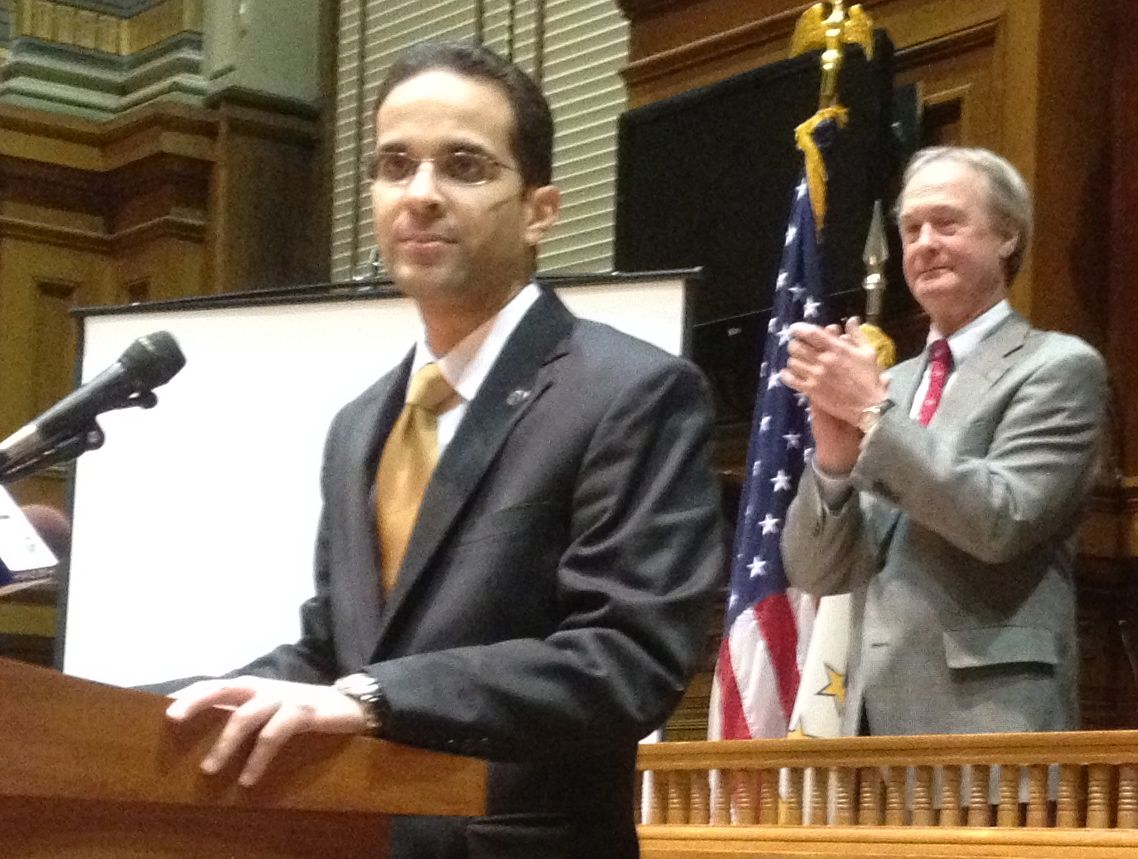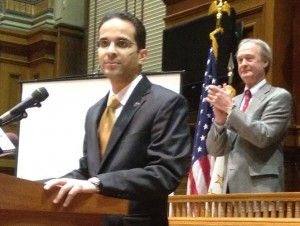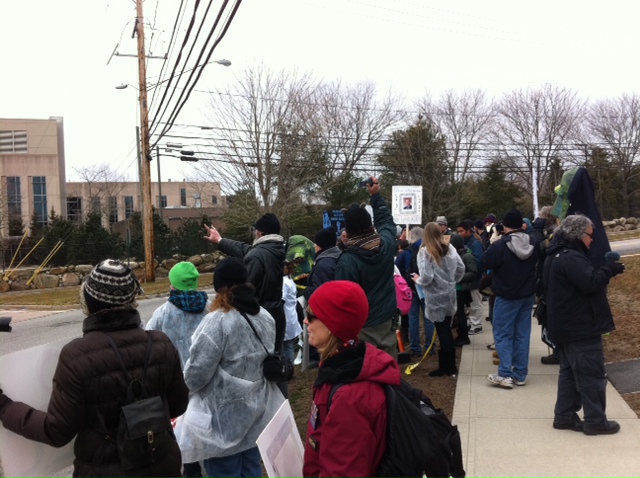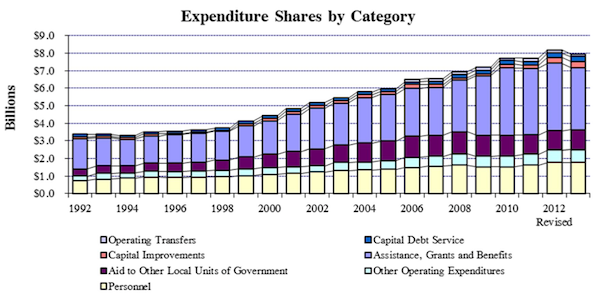 In general, I’m not much for complaining about government services. Yes, pretty much everything could be a lot more efficient, but the more you know about how things work, the more you realize that budgets often determine what gets cut and what survives.
In general, I’m not much for complaining about government services. Yes, pretty much everything could be a lot more efficient, but the more you know about how things work, the more you realize that budgets often determine what gets cut and what survives.
But even I have my limits.
To be sure, I’ll let you know when I get to the part that’s got me cheesed. All the other stuff that precedes it is de rigueur, par for the course. To wit…
Prelude: Johnny Is a Bad Boy
Last Tuesday, I spent a full day on a relatively simple task – renewing my extra-expired registration. If I were a good boy, it all could have been much easier. But I’m very naughty, indeed, as you shall see.
I let the notice that I needed to renew sit on my desk for many weeks. I’d look at it every time I went through the bills, but I never felt like it was the priority. (As I said, naughty.)
When I finally did jump online, I found out that I owed state taxes from 2008. I knew that I hadn’t paid, and, like the registration, it was “on the list”. What I didn’t know is that I hadn’t even filed! (Very naughty, indeed.) Someday, I’ll write a confessional about my 2008 taxes, but for now, suffice it to say that if you’re a 1099er, 1) don’t have a very good year followed by a very bad year and 2) pay your quarterlies!
Well, I got that sorted out with the state and went to register online and, guess what… I owed taxes! This time it was the excise to Pawtucket, where I hadn’t lived for some time. So, I got that paid off and went to register and, guess what… The 90 day grace period had expired. (Have I mentioned that I’m a bit naughty?)
There was nothing for it; I had to go to the actual DMV.
Reset – Naughty Johnny is To Blame
I think it’s perfectly reasonable for the state to use these mechanisms to enforce payment of taxes. I owed, and I knew that I owed. That I found out about these issues online rather than after an hours-long wait at the DMV is, frankly, a benefit to me.
So good on the state for having this in place, and good on the state and the municipalities for coordinating.
My Day at the DMV
Last Tuesday, I underwent the pilgrimage. It was the next-to-last day of the month, so the parking lot was full, the place was crowded and the waits were long. Really long. Three-and-a-half hours long.
That’s really a long wait for a DMV counter, but it is what it is. If I had paid my taxes, I wouldn’t have been in this mess. So I waited, getting a little work done on the laptop, so it wasn’t a total waste.
My number came up, and I thought I’d be done in a few minutes. WRONG!
‘Cuz, guess what… I owed taxes in Pawtucket! Only, I didn’t owe taxes in Pawtucket. I had paid those taxes some six weeks earlier. SIX WEEKS! Surely that’s enough time for the notice to find its way from Pawtucket to the DMV.
Or not. According to my research, forever and a day is not enough time for the coordinated systems to update. They NEVER update.
It’s a one-way street. The city of Pawtucket can put a hold on your registration, but they can’t take it off again. Instead – and it’s like this is some horrible trick they’re playing on you – you’d never know about this until you waited at the DMV.
The DMV clerk suggested that I call Pawtucket to fax the paperwork. She had all the phone numbers on a card. Apparently, this is so common that everybody knows the work-around.
I was hungry and opted to go home, grab a bite, confirm my payment and head up to The Bucket. I said to the tax collections clerk there, “DMV says I have a tax hold…” and she cut me off saying, “…buy you already paid.” She was already reaching for the forms.
“We’re not connected to their systems,” she said. But that’s factually incorrect. They’re only partly connected to the DMVs systems – connected in the way that serves them, but not in the way that serves the rest of us.
This is where I draw the line. If you’re going to play in this space, you have to complete the loop – your system has to be a complete thought.
The DMV should insist – INSIST – that any structure that can curtail one of their processes must – MUST – include the removal of that curtailment. (And, no, waiting until you get a DMV clerk to tell you to telephone the curtailer to fax the curtailment removal paperwork does not count.)
A Fully-Assed DMV System
Never serve rancid meat to the health inspector; never present a half-assed computer system to a computer jockey. For computer systems to deliver the efficiency benefits they promise, they must be fully-assed.
Since it’s clear that nobody involved has ever thought this through, here’s the way the DMV should be set up.
All the paper goes away, as does the waiting area. If there’s a line, it should be a line to get on a computer terminal, of which there are many. This approach requires far fewer clerks, so those people can be repurposed into coaching people who aren’t that great with computers fill out the forms ON THE COMPUTER.
Here’s why. When you fill out the paper form, the DMV clerk just re-enters all that information into a database. The database that ALREADY EXISTS is so thorough that the clerk knew the gross vehicle weight of my van…but she had to push the paper form back to me so I could write it in. (Do you have any idea how insane that is?)
The sad fact is that I have an account in the DMV database, but I can only access it from a remote computer and can only access it in a very limited way. Literally, I couldn’t even access my account from the DMV because there is no Wi-Fi service there!
The Saddest Part
I actually know the people who put together the DMV’s web services. The people at RI.gov are technically a company called RI Interactive, a specially-missioned group that can only do work for government entities. They prefer to be self-funded. That is, they don’t charge the government entity anything; they make money on those little fees we pay for using the web services.
They do spectacular work, and every service that they develop is fully-assed. But, because of their mission, they are prohibited from working on the “back end systems” like the DMV database and its interface.
I’m not saying that RI.gov should run the DMV IT program. (Okay, I _am_ saying that, but I understand why that can’t happen.) I’m saying that EVERY SINGLE GOVERNMENT IT GROUP should model its work on what RI.gov does.
It’s not rocket surgery. It’s basic usability. It’s basic work-flow development. It’s basic government services.
RI DMV: use your whole ass! Ask RI.gov; they’ll show you how.






























